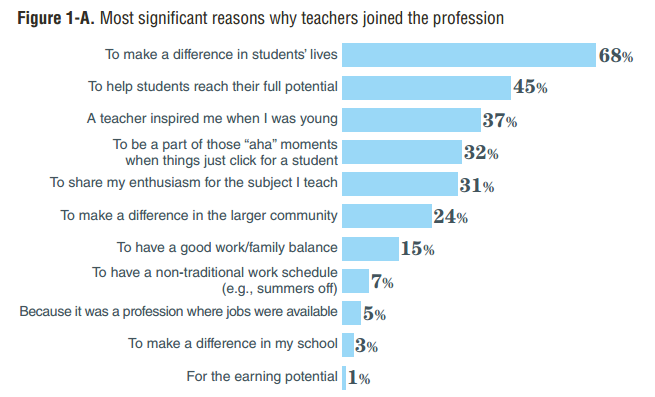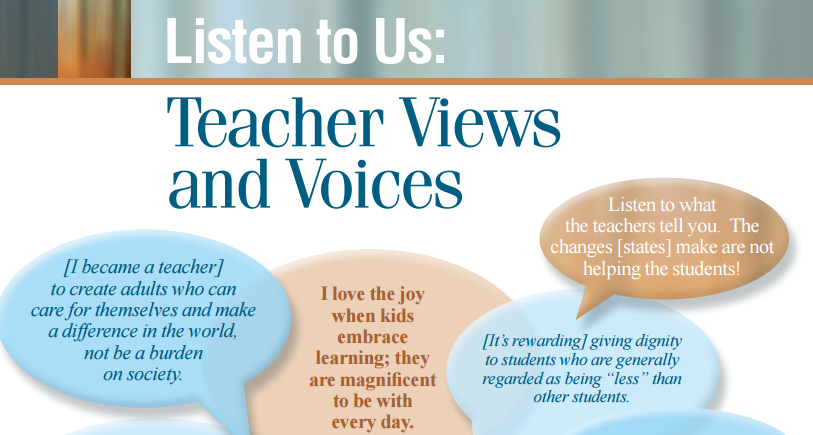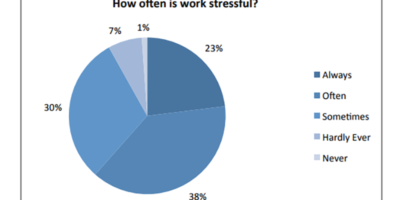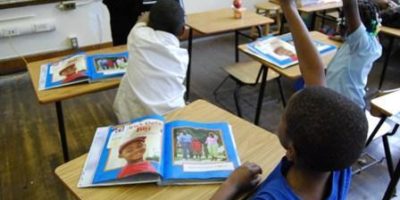A majority of teachers believe they spend too much time preparing students for state-mandated tests (62%) and district-mandated tests (51%). And an overwhelming majority of teachers (81%) believe students spend too much time taking district- and/or state-mandated tests. These are a couple of the key findings from a survey of teachers sponsored by the Center on Education Policy and conducted by Policy Studies Associates. Between mid-November and mid-December of 2015 a 67-question survey was completed by 3,328 teachers in the United States.
Key Findings
- Teachers enter the profession for altruistic reasons. Sixty-eight percent said they became a teacher to make a difference in students’ lives, and 45% said they wanted to help students reach their full potential.
- The most rewarding aspects of teaching involve helping students. Large majorities of the nation’s teachers said that making a difference in students’ lives (68%).

- Some of the greatest challenges faced by teachers come from external policies and constantly changing demands.
- Large majorities of teachers believe their voices are not often factored into the decision-making process at the district (76%), state (94%), or national (94%) levels.
- Most math and ELA teachers are using student results from new assessments to change how they teach.
- About half of the teachers of other subjects report that they are teaching college- and career-readiness (CCR) skills associated with state math and ELA standards, but few have changed their practice to do so.
- An overwhelming majority of teachers (81%) believe students spend too much time taking district- and/or state-mandated tests.
- Many teachers would prefer to cut the frequency and length of state- and district-mandated tests rather than eliminate them altogether.
About the Center on Education Policy
The Center on Education Policy is a national, independent advocate for public education and for more effective public schools. The Center helps Americans better understand the role of public education in a democracy and the need to improve the academic quality of public schools. We do not represent any special interests. Instead, we try to help citizens make sense of the conflicting opinions and perceptions about public education and create the conditions that will lead to better public schools.







What's your view?